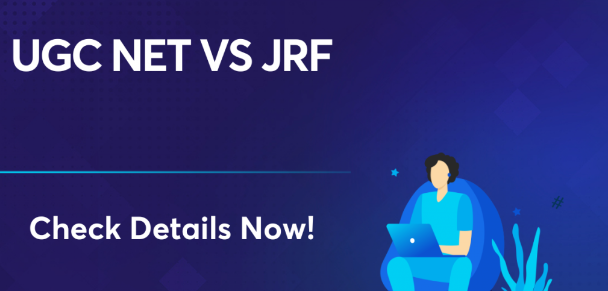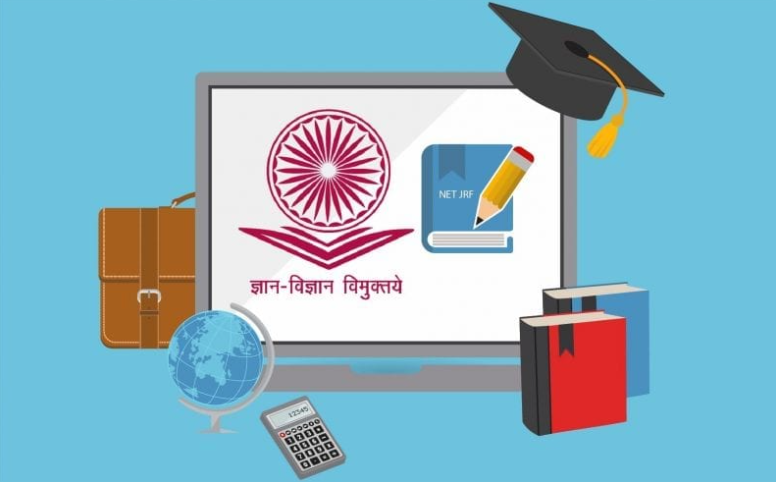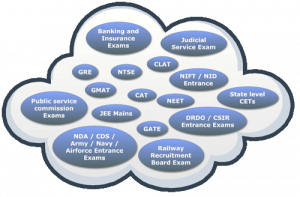Best Books to Read in 2023
Best Books to Read in 2023 Are you a bookworm or a bibliophile, if yes, then this is the ...
The difference between NTA UGC NET and JRF is crucial to understand, especially for first-timers. The purpose of this article is to provide the students with the difference between NTA UGC NET and JRF, to answer the questions and address the concerns raised by aspirants.

The University Grants Commission (UGC) National Eligibility Test (NET) is one of the most important national-level tests held to assess a candidate’s eligibility for a position as an Assistant Professor, a Junior Research Fellowship (JRF), or both, as well as for a doctoral degree and advanced research training at Indian universities and colleges. Many test takers mix up the UGC NET and JRF exams while studying for the former.
Also, read Expert Analysis Of UGC NET 2023 Paper 1
Assistant Professor and Junior Research Fellowship (JRF) candidates must take the UGC NET test to prove their eligibility for these positions at the national level. The UGC NET and JRF Exams are given twice a year, in December and June, by the National Testing Agency (NTA).
Recently as the mode of UGC NET and JRF is online flexibility in the number of times and the month of exam is seen.
After passing the UGC NET Exam, qualified applicants have the option of pursuing a PhD or an M.Phil. in their field of study at any one of a number of universities across India. Candidates who earn their PhD or M.Phil. while teaching at universities and colleges in India will be qualified for assistant professor and lecturer positions at those institutions.
Candidates that meet the requirements can also apply for high-paying positions with PSUs (Public Service Undertakings).
Here are some of the best government agencies that use the UGC Net Exam as a hiring criterion. Some PSUs recruit for positions in management, human resources, corporate communication, finance, science, and research and development across a wide range of fields.
Some universities may waive the requirement for a PhD entrance exam for applicants who have passed the National Eligibility Test (NET). It also prioritises applicants who have earned NET-JRF certification.

Candidates who score in the top 5–7 per cent on the UGC NET exam are awarded a Junior Research Fellowship (JRF) certificate. This is a fellowship opportunity for those interested in conducting research or attending graduate school.
UGC NET and JRF minimum scores fluctuate from year to year. Reasons for the variation in passing scores include:
How many people register for the UGC NET exam each year?
Even if an applicant meets the UGC NET qualifying score, they still may not be chosen for a JRF position. Assistant Professor positions, or both the Junior Research Fellowship (JRF) and Assistant Professor positions, are open to those who score well on the UGC NET Exam and submit their applications to universities and colleges across India. When you get a score over the JRF Cutoff, which is typically 5–7 percentage points higher than the UGC NET Cutoff.
If you’re a candidate and you get JRF, you open up a lot of doors for yourself. For their PhD research, JRF candidates receive a monthly stipend of Rs. 31,000 for a total of Rs. After the second year of their PhD programme and based on an evaluation, they are offered a Senior Research Fellow position with annual growth as per guidelines.
Many research institutions, including IIMs and IITs, offer doctoral programmes open to JRF recipients.
Candidates for the JRF position are competitive for positions at a wide variety of government research institutions.
Junior Research Fellowship applicants might work as temporary lecturers or assistant professors at many universities.
Also, read Best 5 Time Management Tips for Competitive Exams
UGC NET, or the University Grants Commission National Eligibility Test, is an exam given by the National Testing Agency (NTA) to determine whether or not a candidate is qualified to apply for the position of Assistant Professor and has the necessary educational background. In contrast, those who score in the top 5–7 per cent on the UGC NET Exam are presented with a Junior Research Fellowship (JRF) certificate.
JRF is a scholarship program/scheme where individuals are provided with a stipend to do research work after enrolling at any accredited Indian university. We will compare and contrast the NET and JRF programmes, focusing on the key features of the Lectureship and the JRF programme, respectively.
Examine the following list of career options available to those who qualify for the UGC NET and JRF.
The Assistant Professor position is one of the most prestigious and respected professions in the country. Some advantages of becoming an assistant professor are listed below.

Candidates curious about the difference between UGC NET and JRF in terms of job opportunities and career opportunities can review the JRF career options listed below.
The UGC sets distinct age requirements for Assistant Professors and JRFs. Check the requirements prior to applying for the positions.
After learning about the difference between NTA UGC NET and JRF it becomes obvious that the minimal requirement for entering the teaching profession is to obtain a passing score on the NET, and that in order to encourage research, the government grants a stipend to applicants for the JRF.
For this reason, the difference between NTA UGC NET and JRF examinations is quite high, and it is growing at an alarming rate every year for the Indian education system. Best wishes to everyone who is a participant and to be part of this noble profession.
Also, read 8 Tips for Competitive Exam Success for Students
Meet Tanu Bhatnagar, an educational expert with extensive experience in teaching, research and mentoring.With a decade in... (Full bio)

Best Books to Read in 2023 Are you a bookworm or a bibliophile, if yes, then this is the ...

In the exhilarating journey of 10 Proven Memorize Techniques for Students learning, memory is your trusty companion. Whether ...

Top 20 toughest exams in world is about exams in the world that required very hard work to ...

Top 20 toughest exams in India - Exams are the perhaps most toughest moments for any student. A ...

Top 20 Colleges of DU Getting admissions to the top 20 colleges of DU is a dream for every ...

Top 20 NITs of India - Amongst the 31 NITs in India, today, we are talking ...

Here are the Top 12 Artificial Intelligence in Mumbai. Artificial intelligence (AI) refers to the simulation of human ...

As you stand on the Best Science Courses after 12th academic journey, the realm of science beckons, offering ...
Millions of students have entrusted CollegeChalo to facilitate their seamless and smooth admission process to their dream colleges and universities. With CollegeChalo, you can gain a competitive edge by easily accessing exam and course details to stay ahead of the admission journey. What are you waiting for?
Search your dream college